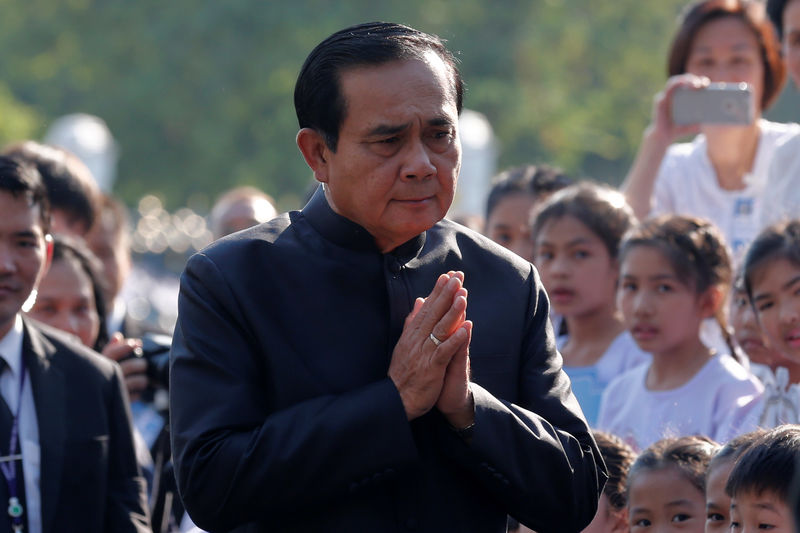By Panarat Thepgumpanat and Patpicha Tanakasempipat
BANGKOK (Reuters) - Thailand's military-led reconciliation talks, aimed at mending the country's political divide ahead of elections next year, will start next week and last three months, the junta said on Thursday.
The junta announced on Wednesday that the elections it had promised for this year would be postponed until 2018. It has billed the talks as proof that it is serious about a return to democracy.
Thailand's junta overthrew the last elected prime minister in 2014, saying it had intervened to end street protests and years of political turmoil. It has promised to restore democracy to the Southeast Asian country.
It set up a reconciliation panel of generals and experts to improve relations between political factions.
"We aim to start reconciliation talks on Feb. 14, the day of love," Lieutenant General Kongcheep Tantravanich, a defence ministry spokesman, told Reuters.
"We want the reconciliation to happen before, during, and after elections."
Thailand's political divide is broadly between the traditionalist elite, centred on middle-class Bangkok, and the less prosperous parts of the country, which largely backed populist governments of former premiers Thaksin Shinawatra and his sister Yingluck. Both were overthrown in 2006 and 2014 coups, respectively.
The Democrat Party, one of two main parties in Thailand, said it believes reconciliation can be achieved.
"I only ask that we don't sweep problems under the carpet and talk about real problems," Wirat Kanyasiri, the party's legal adviser, told Reuters.
But Yingluck's Pheu Thai party said it had doubts.
"The reconciliation panel should consist of people who are neutral," Chaturon Chaisang, one of the party's leaders, told Reuters.
Thanawut Wichaidit, spokesman for the United Front for Democracy Against Dictatorship (UDD), supporters of Thaksin and Yingluck, said the army should position itself neutrally from now on.
Critics have questioned how neutral the panel could be given decades of military involvement in politics.
A Thai political analyst said reconciliation led by the army had more chance for success than by political parties.
"If reconciliation is to be achieved, it has to be led by the military," Kan Yuenyong, executive director of Siam Intelligence Unit think-tank, told Reuters.

"But there could be less resistance if the panel was more neutral."